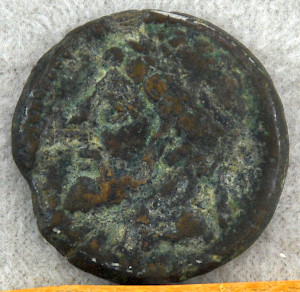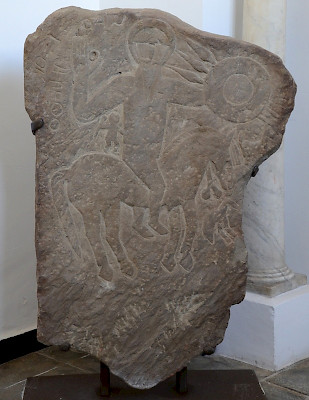Gulussa
Gulussa: Numidian prince and king (ruling after 148 BCE), son of Massinissa, brother of Micipsa and Mastanabal.

Gulussa was probably the second son of king Massinissa of the Massylian (eastern) Numidians. In 172 BCE, he spoke in the Roman Senate, answering complaints from the Carthaginians, who were furious about Numidian attacks on Carthaginian territories. Massinissa had conquered seventy towns. Gulussa refused an answer and gained time.note In the next year, he visited Rome again, saying that the Carthaginians were liars.note The Senate, focused on the war with king Perseus of Macedonia, was not interested in the Carthaginian and Numidian affairs and allowed Massinissa to expand his territories.
In c.151 BCE, Gulussa was again in Rome, reporting that the Carthaginians were conducting a levy and building a navy, and that, without any doubt, they were preparing for war.note Indeed, war was approaching. When Gulussa and his elder brother Micipsa visited Carthage, to ask the city to receive back about forty pro-Numidian politicians who had been exiled and were living at the Numidian court, their embassy was unsuccessful. After the two princes had reached Carthage, they were sent away.note
Gulussa was even attacked by a man named Hamilcar the Samnite, which led to retaliations and, eventually, the outbreak of open war between Numidia and Carthage.note This happened in 151 BCE. Because Rome had forbidden Carthage to wage war, this was the direct cause of the Third Punic War.

Shortly after this war had broken out in 149 BCE, king Massinissa died (Spring 148).note The Roman officer Scipio Aemilianus was the executor of his will
To Micipsa, the oldest, a lover of peace, he assigned the city of Cirta and the royal palace there. Gulussa, a man of warlike parts and the next in age, he made the director of matters relating to peace and war. Mastanabal, the youngest, who was learned in the law, was appointed judge to decide causes between their subjects.note
During the Third Punic War, Gulussa fought alongside the Roman legions. They were often attacked by a Carthaginian leader named Phameas, who was able to make life quite unpleasant for the Romans. Gulussa and his men successfully sought out Phameas' hiding places and attacked him over there, putting an end to these raids.note
The Numidian leader suffered a setback, however, when eight hundred of horsemen, led by a man named Bithya, transferred their loyalty to Carthage.note Not much later, a Carthaginian attempt to surrender the city to Gulussa, instead of the Romans, failed.note Still, even with a smaller army, he was able to contribute to the expedition of the Roman commander Scipio against the Carthaginian stronghold of Nepheris (147 BCE).note He is also mentioned as conducting negotiations with the Carthaginian commander Hasdrubal.note
We do not learn much about Gulussa's further military exploits, even though the final siege of Carthage would have offered the authors of our sources (e.g., Polybius, who was instructed by Gulussa about elephantsnote) many opportunities to mention them. It is possible that by now, he and Mastanabal had already succumbed to an illness, leaving Micipsa only ruler.note
Polybius praises Gulussa's "true Numidian simplicity".note Gulussa had a son named Massiva, who later visited Rome and was assassinated under the orders of his cousin Jugurtha, the son and successor of Micipsa.note